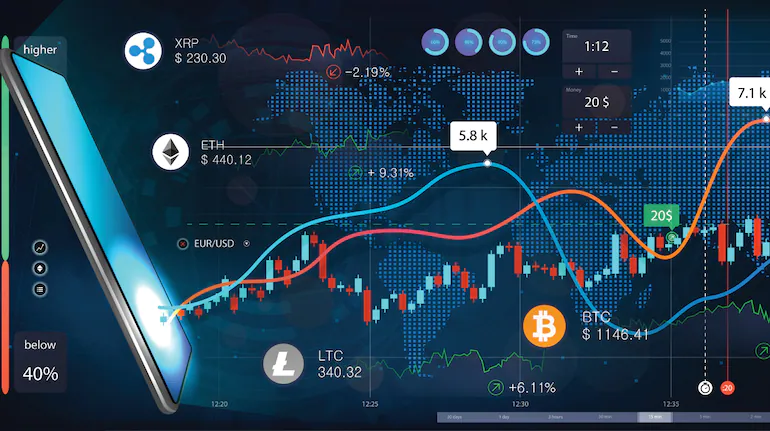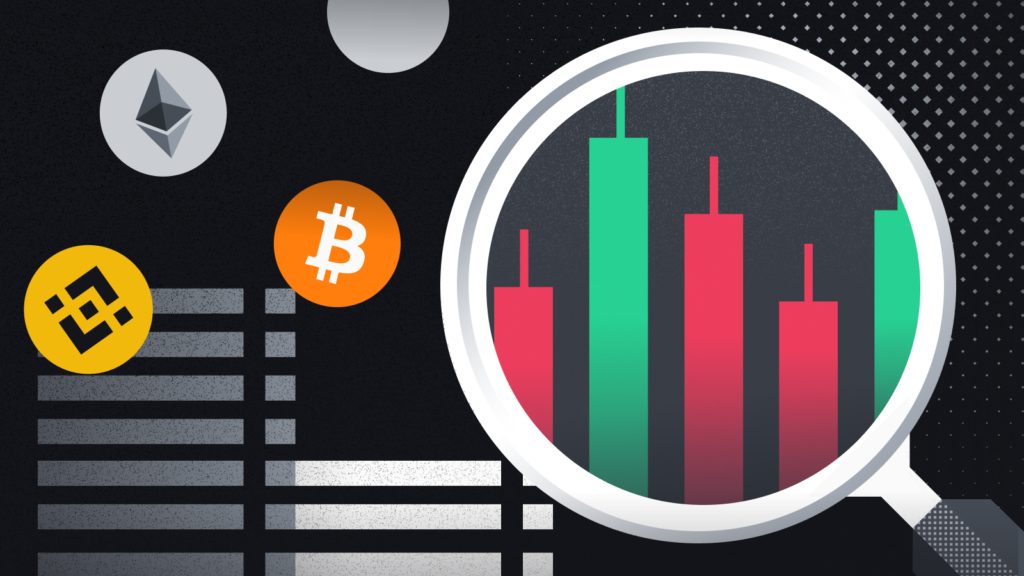
Cryptocurrency trading has rapidly evolved into a global phenomenon. As digital currencies gain traction, more individuals venture into the realm of crypto trading. For those starting their journey, the landscape might seem intimidating. However, armed with the right tools and knowledge, even a novice can navigate this dynamic market efficiently. This article offers a comprehensive guide to tools and strategies vital for beginners in crypto trading.
Table of Contents
Essential Tools for Crypto Trading Beginners
The initial step into the crypto world often begins with a robust trading platform that offers a user-friendly interface, real-time data, and secure transactions. Platforms like Binance, Coinbase, and Kraken have grown in popularity due to their ease of use and comprehensive tools tailored for beginners. These platforms offer tutorials, customer support, and an intuitive dashboard, assisting novices in understanding the intricacies of the market.
On top of trading platforms, beginners should consider utilizing portfolio tracking apps. Tools like Blockfolio and Delta give traders an overview of their investments at a glance, showing real-time price changes, transaction histories, and profit/loss statements. They help in streamlining trades and in monitoring the performance of your crypto assets over time. If you need a beginner-friendly platform to start in the best way possible, visit https://the-wealthmatrix.com/.
Navigating Cryptocurrency Exchanges with Confidence
Understanding how exchanges work is pivotal. Centralized exchanges, like Binance or Coinbase, are often the go-to for beginners due to their liquidity, range of coin offerings, and established reputation. These platforms function as intermediaries, facilitating trades between buyers and sellers for a fee.
Conversely, decentralized exchanges (DEXs) like Uniswap or Sushiswap, operate without a central authority. Here, trades are directly between users. DEXs provide more privacy and reduced fees but might be a bit more complex for newcomers. Regardless of the choice, it’s crucial to research and choose exchanges that best align with individual trading goals and comfort levels.
Wallets and Security: Protecting Your Crypto Investments
When it comes to storing cryptocurrencies, wallets play an essential role. Hot wallets are online storage systems, often provided by exchanges. They offer convenience, but because they are internet-connected, they may be susceptible to hacks. Many beginners opt for them due to their ease of use and integration with trading platforms.
Cold wallets, on the other hand, are offline storage solutions like hardware or paper wallets. These provide an extra layer of security since they are disconnected from the internet. For long-term storage or significant amounts of crypto, hardware wallets like Ledger Nano X or Trezor are recommended, as they protect assets from potential online threats.
Analyzing Market Trends: Introduction to Technical Analysis

Source: blog.askwonder.com
Technical analysis is a method traders use to predict future price movements based on historical data. This involves studying charts and using indicators like Moving Averages, Bollinger Bands, and the Relative Strength Index. These tools help in identifying trends, potential buy/sell signals, and market momentum.
While this method primarily focuses on price and volume, it doesn’t account for external factors affecting the market. Nonetheless, for short-term trading, especially in the highly volatile crypto market, technical analysis can be an invaluable tool. Beginners should spend time understanding these metrics to enhance their trading decisions.
Fundamental Analysis: Making Informed Crypto Investment Choices
Fundamental analysis, in contrast to technical analysis, involves evaluating a cryptocurrency’s intrinsic value. This means delving into whitepapers, understanding the technology behind a coin, its use cases, and the team involved. A solid project will have clear goals, a transparent roadmap, and visible progress in its development.
Additionally, factors like market sentiment, news events, regulatory changes, and macroeconomic indicators play a role in influencing a coin’s value. By combining technical and fundamental analysis, beginners can develop a well-rounded understanding, ensuring they make informed and strategic trading decisions.
Embracing Automation: How Trading Bots Can Assist Beginners
Trading bots are software programs designed to execute trades automatically based on a set of predetermined criteria. For beginners, bots like 3Commas or Cryptohopper can be beneficial as they allow for 24/7 trading, even when you’re asleep or away from your desk. They can also execute trades faster than manual trading.
However, it’s crucial to approach these tools with caution. While they can optimize trading, they’re only as effective as the strategies programmed into them. Before diving in, beginners should research, understand the bot’s functionalities, and maybe start with a bot offering a demo mode to get accustomed.
Risk Management Strategies for Novice Crypto Traders
Risk management is essential for any trader, especially in the volatile crypto market. One strategy is the ‘1% rule,’ which suggests never risking more than 1% of your total portfolio on a single trade. This way, even if a trade doesn’t pan out as expected, the overall portfolio isn’t drastically affected.
Another crucial tactic is setting stop-loss orders. These automatically sell a cryptocurrency once its price drops to a certain level, preventing further losses. By integrating such strategies, beginners can protect their capital and stay in the game longer.
Learning from the Community: Social Trading Platforms

Source: business-opportunities.biz
Social trading platforms, like eToro, enable traders to emulate the strategies of successful, more experienced traders. This is especially beneficial for beginners, as it allows them to learn from experts, gain insights, and understand the thought processes behind specific trades without starting from scratch.
Furthermore, crypto forums and communities such as Reddit’s r/cryptocurrency or Bitcointalk can be goldmines of information. Engaging with these communities not only offers learning opportunities but also keeps traders updated with the latest news and trends in the crypto space.
Diving into Educational Resources for Crypto Trading Success
Education is paramount in crypto trading. Websites like CoinMarketCap and CoinGecko provide not just price tracking but also informative articles, glossaries, and market analysis. For deeper dives, platforms like Udemy and Coursera offer courses on cryptocurrency and blockchain technology.
It’s also beneficial to follow influencers and experts on platforms like Twitter and YouTube. Many offer free advice, share their trading strategies, and provide analyses of the current market. Consistent learning will keep beginners informed and ahead in the ever-evolving crypto landscape.
Overcoming Challenges: Psychological Aspects of Crypto Trading
Trading can be an emotional rollercoaster, with the crypto market’s volatility amplifying these feelings. FOMO (Fear of Missing Out) can drive hasty decisions, while panic selling might occur during market dips. It’s essential to cultivate a disciplined mindset, set clear goals, and stick to your strategies irrespective of market sentiments.
Maintaining a trading journal can be beneficial. This allows traders to reflect on their decisions, understand their emotional triggers, and learn from both their successes and mistakes. Over time, this self-awareness can lead to better decision-making and emotional resilience.
Final Words
With the right tools, strategies, and mindset, the realm of crypto trading becomes less daunting. Beginners have a world of opportunities awaiting them. By starting strong and staying informed, success in the dynamic world of cryptocurrency trading is within reach.








